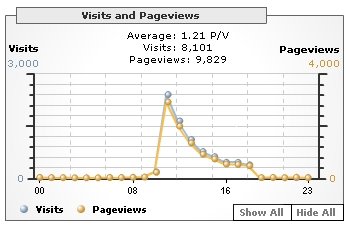digg
digg is a great source for fresh tech-related news. Popular subjects on digg.com are hardware, software, gaming, movies, music and robots. You can browse by subject or top stories, and it is easy to search.
Like slashdot, digg has a large readership that is technology-savvy and is willing to contribute to the community with comments and ratings. In contrast to slashdot, it is the community (not a moderator) that determines what makes it to the front page.
Once a story is posted to digg it sits in a holding area (sorted by post date as all digg stories except top stories are). Interested users can review it and decide it is spam, ignore it or “digg” it. If a story gets enough diggs it is promoted to the front page where it is most visible. Interestingly, that is exactly what happened to Warren’s MAME article this morning.
In the wee hours I decided to post a link to the MAME article to digg as an experiment. digg has been on my "to blog about" list for a while and I wanted to know more about how it worked. When I woke up this morning I was pleasantly surprised that the post had been dugg 17 times - and I was shocked by what happened later in the day. A little after 10 am it was promoted to the digg.com front page.
Now, 23 hours after I posted to digg, the MAME story has become the 22nd most popular of the day and I’ve had:
9,829 page views on my blog
8,101 unique visitors
882 diggs
42 comments on digg
14 comments on my blog
4 other blogs link to the post
By way of comparison, I tend to get about 80 page views and 50 unique vistors in a typical day. The hourly visitor and page view graph below highlights the front page effect as experienced by my site.
 digg let’s you articulate friends so that its collaborative filtering can be personalized by what your friends are digging, a powerful feature. But, what is amazing about digg is the vibrancy of the community.
digg let’s you articulate friends so that its collaborative filtering can be personalized by what your friends are digging, a powerful feature. But, what is amazing about digg is the vibrancy of the community.
A great hope for the internet is that it could create a more efficient marketplace of ideas. Services like digg are certainly helping to fulfill that dream. Because a few people enjoyed Warren’s article and found it helpful, 10,000 people were able to read it today, and that is very cool.
Bonus link: a 2005 interview with the digg.com founders
0 Comments:
Post a Comment
<< Main page